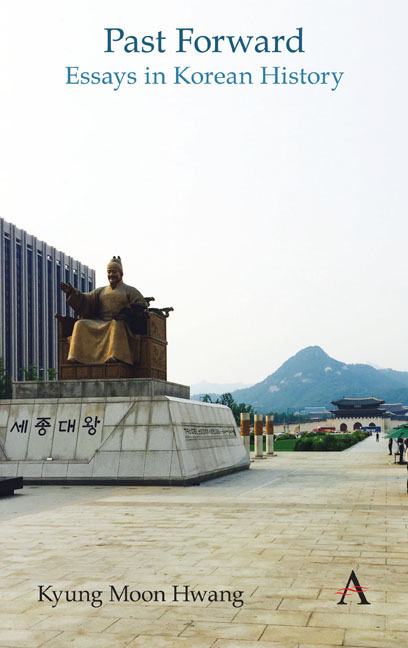Book contents
- Frontmatter
- Contents
- List of Figures
- Foreword
- Chronologies of Korean History
- Themes
- Acknowledgments
- Note on Romanization and Spelling
- Part I Circulating History
- Part II Durable Traditions
- Part III Ancient Remains
- 16 The Beginnings of Korean History
- 17 Ancient and Present Gaya
- 18 Empress GI
- 19 Speaking of Northern Korea, not North Korea
- Part IV Dynastic Depths
- Part V Modern Origins
- Part VI Challenges of Nationhood
- Part VII History Makers
- Part VIII External Presences
- Part IX Trials of Modernization
- Part X Gripped by the Past
- Index
17 - Ancient and Present Gaya
from Part III - Ancient Remains
- Frontmatter
- Contents
- List of Figures
- Foreword
- Chronologies of Korean History
- Themes
- Acknowledgments
- Note on Romanization and Spelling
- Part I Circulating History
- Part II Durable Traditions
- Part III Ancient Remains
- 16 The Beginnings of Korean History
- 17 Ancient and Present Gaya
- 18 Empress GI
- 19 Speaking of Northern Korea, not North Korea
- Part IV Dynastic Depths
- Part V Modern Origins
- Part VI Challenges of Nationhood
- Part VII History Makers
- Part VIII External Presences
- Part IX Trials of Modernization
- Part X Gripped by the Past
- Index
Summary
Some controversy arose when President Moon Jae-in, soon after taking office in May 2017, publicly encouraged greater study of the ancient civilization of Gaya and nominated a particular National Assemblyman for a cabinet position. President Moon vowed to do things differently from his disgraced predecessor, but both of these steps seem mostly to have continued a disturbing pattern.
That pattern has been government intervention in historical scholarship, or more generally the politicization of history. State sponsorship of historical study is not always a bad thing: When, in the previous decade, the South Korean government established a commission to document the hidden atrocities of the Korean War, for example, it overturned a long-standing cover-up from the dictatorship period. Several years earlier, another government decision, to let competing private publishers write history textbooks instead of authorizing only a single official version, had further enhanced the spirit of openness following democratization in 1987.
This explains why the interventions of the preceding president, Park Geun-hye (2013–2016), were so distressing. First, she tried to renationalize high school history textbooks, over the outcry from almost all professional historians, in a transparent effort to resuscitate the historical reputation of her father, Park Chung-Hee, the former president and dictator. This was one of several moves by her administration, including the rushed agreement in 2015 with the Japanese government regarding the comfort women issue, that aimed to break down what was considered a domineering leftist historical orthodoxy.
Regardless of whether historical understanding is dominated by progressives, however, both left and right views, at least among the general public, are undeniably nationalistic. Politicians and other non-historians readily turn to ethnic appeals over history, especially in order to mobilize supporters for historical claims against Japan or China. Thus, President Moon's appointment of Do Jong-hwan as his Minister of Culture, Sports, and Tourism, was troubling. As a legislator, Mr. Do fought against the renationalization of textbooks, but he also called for rejecting major research projects that he deemed insufficiently one-sided, as if somehow he, once a famed poet, knew better than groups of trained historians.
- Type
- Chapter
- Information
- Past ForwardEssays in Korean History, pp. 48 - 50Publisher: Anthem PressPrint publication year: 2019

